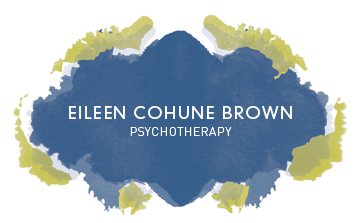The Hilarious World of Depression?
The podcast, “The Hilarious World of Depression,” just popped up on my radar; specifically this interview with Wilco frontman, Jeff Tweedy. Tweedy shares his lifelong struggles with depression and anxiety, including his attempts to self-medicate, a horrifying treatment with an “evil” therapist, and his inpatient treatment for dual diagnosis: depression and opioid addiction.
Tweedy, a highly creative and seemingly sensitive person, began to get migraines at age 6, and muses that they might have been some way for him to express his psychic pain in a physical, noticeable manner. “I think that the depression and anxiety has some connection to the migraines for me. In some ways, I think that migraines were some way of making psychic pain visible to people around me...something that would be nurtured, as opposed to being reacted to with ‘i’ll give you something to cry about…’”
He describes his depression today as, “managed.” He goes on, “I don’t think it’s behind me. I expect to be confronted with challenges in dealing with it for the rest of my life and I’m ok with that. I think there are way worse things that can happen to you in your life and that was a pretty great revelation to me… Being sad isn’t the worst thing that can happen to you; it’s kind of a part of how life works. I think people really get into trouble when they think that they get to choose their emotions and that you can stay in one emotion by choice.”
If you’re a Wilco fan, you’ll probably enjoy hearing Tweedy’s recollection of his life and career. If you aren’t familiar with Wilco, check out their website here. Their music is critically acclaimed, and the lyrics, written almost entirely by Tweedy, are known for being richly metaphorical and laden with evocative images, often autobiographical. Please be Patient with Me alludes to how Tweedy’s struggles impact his relationships.
As a psychodynamic therapist, Tweedy’s words deeply resonate; learning to embrace or “nurture” troublesome symptoms, is a powerful, seemingly paradoxical way to meet suffering. I work with patients to cultivate their self-compassion, by inviting in and meeting those most wounded parts. I also find his normalization of depression and sadness to be refreshing. Too often, this culture treats sadness and worry as pathology, when both are actually normal human experiences. Through attempts to change or eliminate those parts of one’s self, sadness and anxiety often worsen, or lead folks to self-medicate with alcohol or drugs.
In my practice, I work with many creative individuals who struggle with depression, anxiety and addiction. I do not treat people who are currently abusing substances, but I do work with folks in recovery (which often includes relapses) and can provide referrals to other services. In the San Francisco Bay Area, I highly recommend UCSF for inpatient, and more intensive psychological resources. Here is a list of many of their psychological and addiction treatment services. Feel free to contact me if you'd like to talk about beginning therapy, or need other resources.
Be well, and be patient with yourself.

